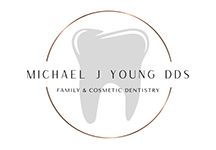 Do you know why brushing and flossing your teeth helps protect them from infection and disease? The simple answer would be that daily dental maintenance keeps your mouth clean. The more detailed answer would describe the hordes of bacteria that gather to form dental plaque, then stick to your teeth and gums. Not all of these microbes are dangerous, but the ones that are undergo processes that, if left to their own devices, would thoroughly destroy your teeth and their supporting structures of soft tissue and bone. To help strengthen your knowledge of these malicious mouth dwellers, take the oral bacteria quiz below, provided by your Lafayette dentist, Dr. Michael Young.
Do you know why brushing and flossing your teeth helps protect them from infection and disease? The simple answer would be that daily dental maintenance keeps your mouth clean. The more detailed answer would describe the hordes of bacteria that gather to form dental plaque, then stick to your teeth and gums. Not all of these microbes are dangerous, but the ones that are undergo processes that, if left to their own devices, would thoroughly destroy your teeth and their supporting structures of soft tissue and bone. To help strengthen your knowledge of these malicious mouth dwellers, take the oral bacteria quiz below, provided by your Lafayette dentist, Dr. Michael Young.
The Oral Bacteria Quiz
Questions
Bacteria are a part of your mouth’s natural ecology. On average, how many different kinds of bacteria inhabit a healthy human mouth?
- 100
- 400
- 600
- Billions
Of the harmful bacteria that inhabit your mouth, which strain is most commonly associated with tooth decay because of the acids it produces after consuming sugar?
- Streptococcus mutans
- Streptococcus gingivalis
- Porphyromonas mutans
- Porphyromonas gingivalis
Which bacterium is blamed for the inflammation that exacerbates gum disease, and is also a suspected contributor to other chronic inflammatory diseases throughout your body?
- Streptococcus mutans
- Streptococcus gingivalis
- Porphyromonas mutans
- Porphyromonas gingivalis
Answers
3—Experts have identified approximately 600 different kinds of bacteria that inhabit the human mouth. At any given moment, the tally of germs in your mouth can reach between 10-15 billion individual microbes.
1—A common misconception about cavities is that they are a direct result of eating too much sugar. The truth, however, is that sugar (along with other fermentable carbohydrates) feeds the bacterial strain, Streptococcus mutans, which converts these carbs into acid. As the acid coats your teeth, it deprives them of essential minerals as it dissolves your tooth enamel, preparing the path for tooth decay.
4—Porphyromonas gingivalis, which is a main contributor to plaque formation, has the tendency to incite inflammation in your mouth’s soft gum tissue. Diseased gums, teeth, or other oral tissue can provide a means for P. gingivalis to enter your bloodstream, potentially inciting inflammation in other areas of your body and leading to illnesses such as heart disease, respiratory infections, and some forms of dementia, among many others.
Keep Your Mouth Clean and Healthy in Lafayette
If you live in the 70508 area and would like to learn more about the germs in your mouth, or if you would like to schedule an appointment with Dr. Young, call our Lafayette dentist office at (337) 237-6453.

